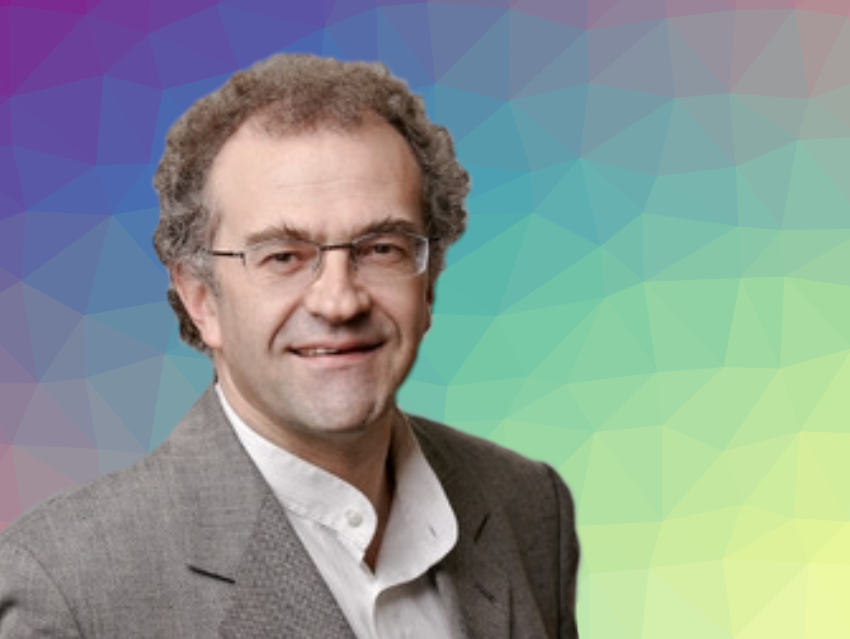Professor Klaus Kümmerer, Leuphana University Lüneburg, Germany, has received the Wöhler Prize for Sustainable Chemistry for his pioneering research work in the field from the Gesellschaft Deutscher Chemiker (GDCH, German Chemical Society).
The award is endowed with EUR 7,500 of prize money and honors pioneering and outstanding contributions to the development and implementation of sustainable chemistry. It was presented at the GDCh-Wissenschaftsforum Chemie (WiFo 2023) in Leipzig, Germany on September 6, 2023.
Research
Klaus Kümmerer has performed outstanding work in sustainable chemistry, e.g., concerning recyclable plastics, wastewater reuse, and the end-of-life management of solar cells. He was one of the first to establish the “benign by design” concept, in which environmental pollution is reduced through the targeted design of molecules.
Kümmerer successfully tested the concept in practical examples, such as the development of ionic liquids that are less harmful to the environment or biodegradable antibiotics. In addition, he is committed to ensuring that sustainable topics are integrated into the training of chemists and has designed and established corresponding courses.
Career
Klaus Kümmerer studied chemistry at the Universities of Würzburg and Tübingen, Germany. He completed his Ph.D. in 1990 in Tübingen. In 1999, he completed his habilitation in environmental chemistry and environmental hygiene at the University of Freiburg, Germany. Then he served as an Assistant Professor and later as Head of the Section for Applied Environmental Research at the University Hospital Freiburg.
In 2005, Kümmerer became an Associate Professor at the University of Freiburg. From 2008 to 2010, he was both Deputy Chair of the Commission for Environment and Sustainability and Environmental Officer at the University Hospital Freiburg. Kümmerer has been Professor of Sustainable Chemistry and Physical Resources at Leuphana University since 2010 and Director of the Research & Education Hub at the International Sustainable Chemistry Collaborative Center (ISC3) since 2017.
Selected Publications
- Repurposing chemical waste: Sustainable chemistry for circularity beyond artificial intelligence,
Vânia G. Zuin, Klaus Kümmerer,
Cell 2022, 185, 2655–2656.
https://doi.org/10.1016/j.cell.2022.06.041 - Inventory of biodegradation data of ionic liquids,
Ann-Kathrin Amsel, Oliver Olsson, Klaus Kümmerer,
Chemosphere 2022, 299, 134385.
https://doi.org/10.1016/j.chemosphere.2022.134385 - Flavonoids as biopesticides – Systematic assessment of sources, structures, activities and environmental fate,
Lena Schnarr, Mateus L. Segatto, Oliver Olsson, Vânia G. Zuin, Klaus Kümmerer,
Sci. Total Environ. 2022, 824, 153781.
https://doi.org/10.1016/j.scitotenv.2022.153781 - Education in green chemistry and in sustainable chemistry: perspectives towards sustainability,
Vânia G. Zuin, Ingo Eilks, Myriam Elschami, Klaus Kümmerer,
Green Chem. 2021, 23, 1594–1608.
https://doi.org/10.1039/d0gc03313h - Characterization of photo-transformation products of the antibiotic drug Ciprofloxacin with liquid chromatography–tandem mass spectrometry in combination with accurate mass determination using an LTQ-Orbitrap,
Tarek Haddad, Klaus Kümmerer,
Chemosphere 2014, 115, 40–46.
https://doi.org/10.1016/j.chemosphere.2014.02.013 - Synthesis of Room-Temperature Ionic Liquids with the Weakly Coordinating [Al(ORF)4]−Anion (RF = C(H)(CF3)2) and the Determination of Their Principal Physical Properties,
Safak Bulut, Petra Klose, Mian-Mian Huang, Hermann Weingärtner, Paul J. Dyson, Gábor Laurenczy, Christian Friedrich, Jakob Menz, Klaus Kümmerer, Ingo Krossing,
Chem. Eur. J. 2010, 16, 13139–13154.
https://doi.org/10.1002/chem.201000982




![Synthesis of [c2]Daisy Chains via Mechanochemistry](https://www.chemistryviews.org/wp-content/uploads/2025/04/202504_RotaxanesWithSolidStateMechanochemistry-125x94.png)